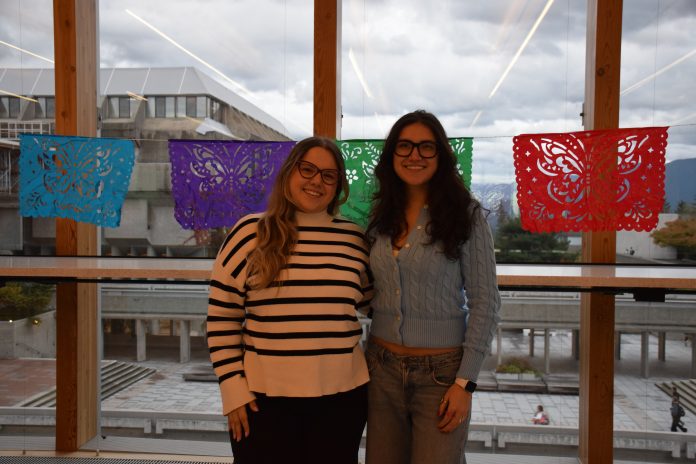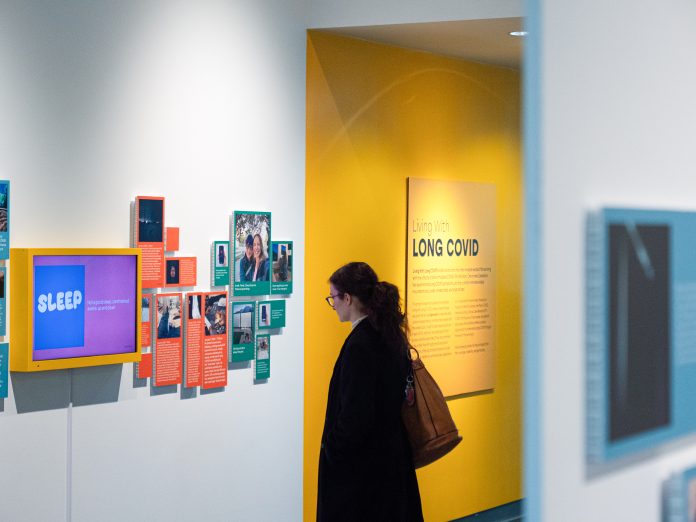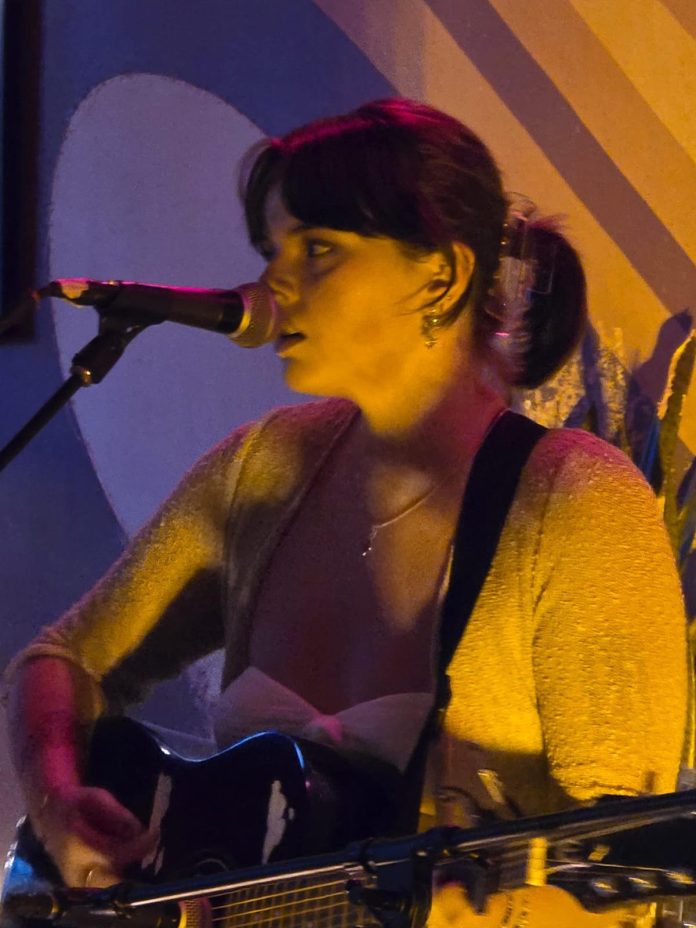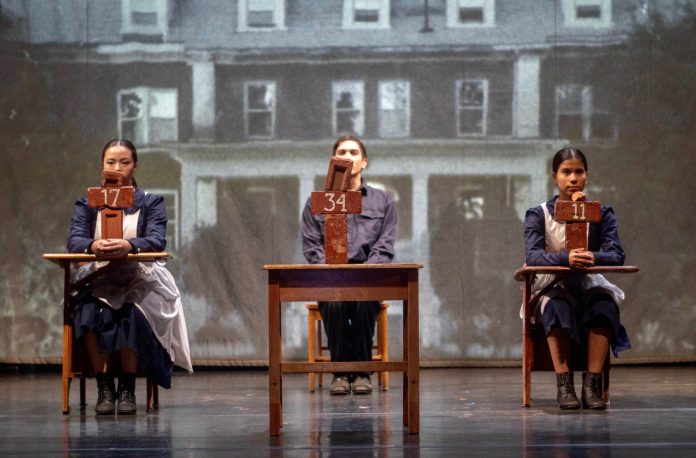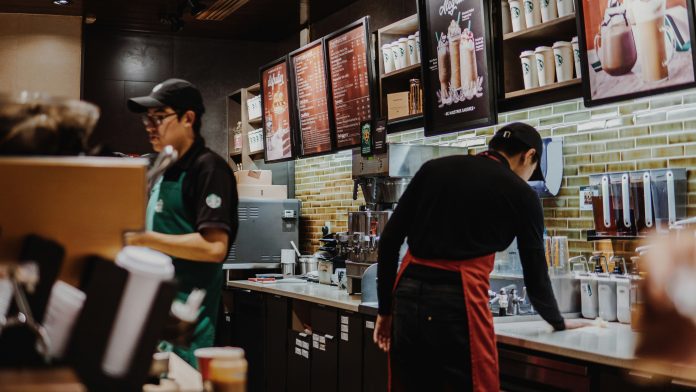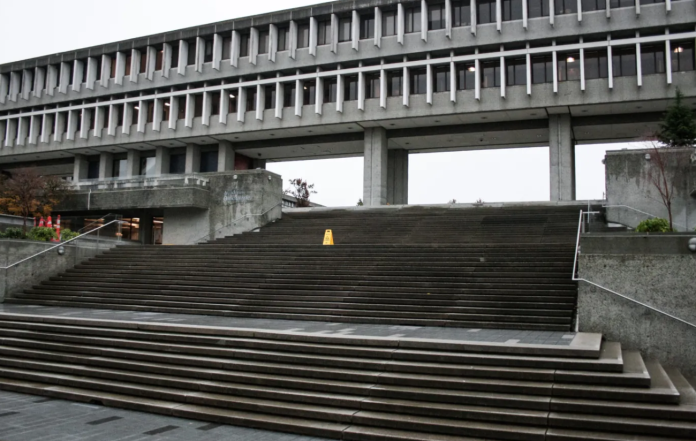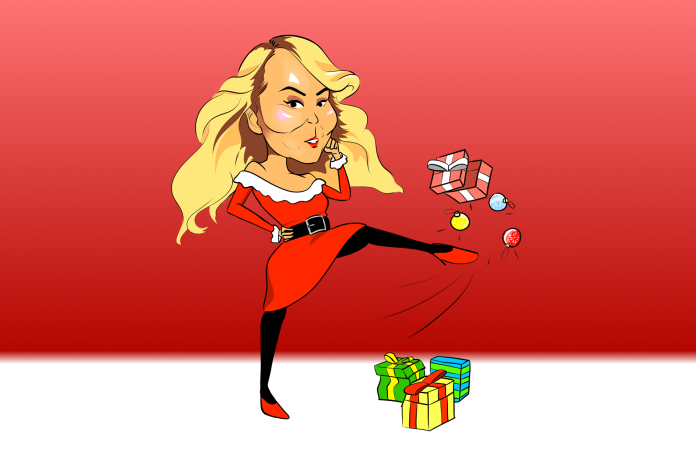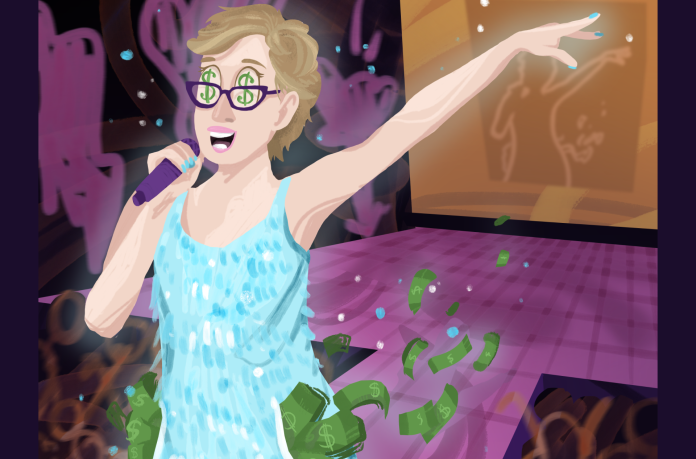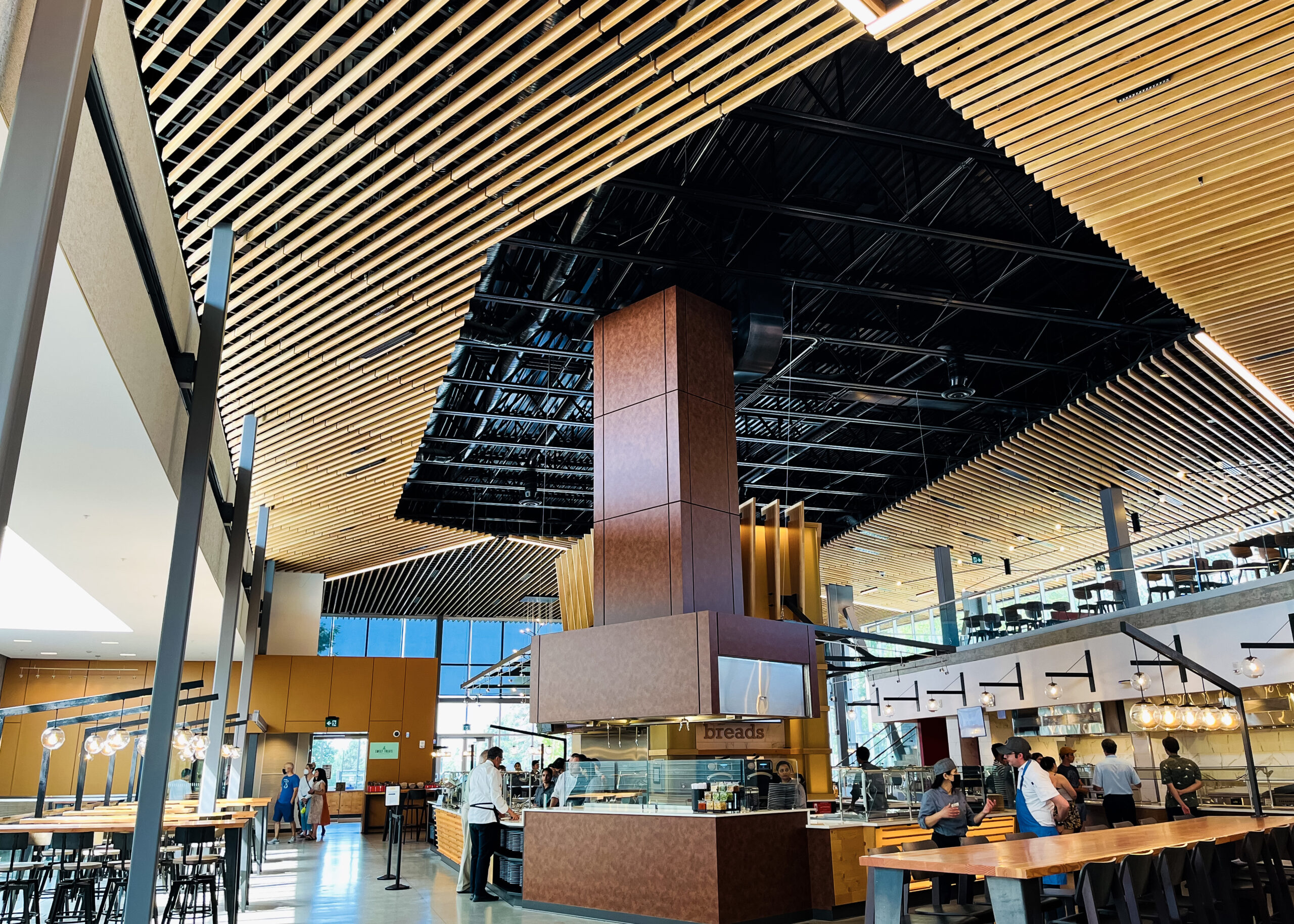By: Petra Chase, Features Editor
SFU’s Association of Latin American Students (ALAS) has represented students from the region since the early 2000s. On October 1, they hosted the Latin Street Food Fest Icebreaker in the SUB ballroom. From walking through the doors, I felt welcomed and immersed in cultures.
Maria Clara Rezende, whose favourite Latino song is her homeland’s classic “A Banda” by Chico Buarque, was looking for a sense of belonging when she discovered ALAS a few semesters into her communication degree. Rezende began to feel connected when she joined ALAS and the Brazilian Students Association. Both associations now frequently collaborate. Now, as president, she hopes to continue building community, which is “something we sometimes lose when we move countries,” she told me in an interview.
Vice president Regina Zamora Sierra, who moved here from Mexico City to major in economics, shares the same passions: “make [ALAS] bigger and also share my own culture,” she shared, speaking alongside Rezende. Each food on the menu had its own booth run by executives, serving their favourite street foods: Brazilian coxinhas (chicken croquettes), dulce de leche churros, tortilla chips with salsa, and pineapple/mango with chamoy (pickled fruit sauce) and Tajín (a blend of chilli peppers, lime, and salt).
“We tried to recreate a street festival — even though we’re limited to the space and resources we have. Just try to be as authentic as possible,” Rezende said. “I think it’s a great example of our culture,” Sierra added. “We’re showing a little bit of how we interact socially with other people.”
A photo stand with characters in Mexican attire, a string of papel picado hanging on the wall, and tables covered with ponchos are some of the details that reflect the commitment to bringing a sense of home to the approximately 4% of SFU students who are Latin American.
As people played darts and corn hole, there was also a booth for purchasing club tote bags. These feature an array of illustrated animals associated with Latin American countries, including a llama (representing Peru), a cuy (or guinea pig from Ecuador), and a gallito de las rocas (Andean cock-of-the-rock).
“From Mexico, which is in North America, to Chile or Uruguay, which are the very bottom of South America, there’s a lot of culture in between those countries,” Rezende explained. ALAS provides a “space to share culture and learn more about other people’s culture, and we’re always trying to be as inclusive as we can.”
Prior to the street fest, ALAS hosted an exec night to welcome the mostly new executives.
“It was like witnessing the beginning of friendships and connections and something really great and [ . . . ] it was like a warm hug,”
— Maria Clara Rezende, ALAS president
“There’s a big cultural diversity at SFU, even outside of ALAS, and I think that’s really nice,” Sierra added. “I’ve met a lot of people who don’t know about the club but are part of the Latin American community, even if it’s just because of one of their parents, and it’s really nice to always share our community with them, and have them celebrate their culture with us.”
Rezende also pointed out the value of “higher education knowledge” for Latin students, “for those of us who grew up here, and those who moved.” While there are courses geared towards Latin culture, language and history, they are not promoted enough, she added. “The Latin American students here, we still want to know things about our countries that we don’t get to experience in our regular classes.” For example, Portuguese-language literature (The Hour of the Star by Clarice Lispector is a favourite of hers).
A significant part of ALAS is bringing people together through events. Sierra described a soccer match last semester, where people who weren’t part of the club happened to be playing on the same field and joined in. “We found out that they were Latin American as well and that’s how they found out about the club,” she said. “It was nice to see that game that’s such a big part of my culture represented,” and for new members to join that way.
“Our main goal is just to increase peoples’ knowledge about ALAS because sometimes we feel like people just don’t know we exist, we are here,” Rezende said.
Sierra emphasized, “Our memberships are not exclusive to Latin Americans, it’s just people who want to enjoy the culture as well.” The street fest concluded with competitive rounds of musical chairs against the backdrop of everything from salsa, reggaeton, Brazilian funk, and bachata, to Shakira.


